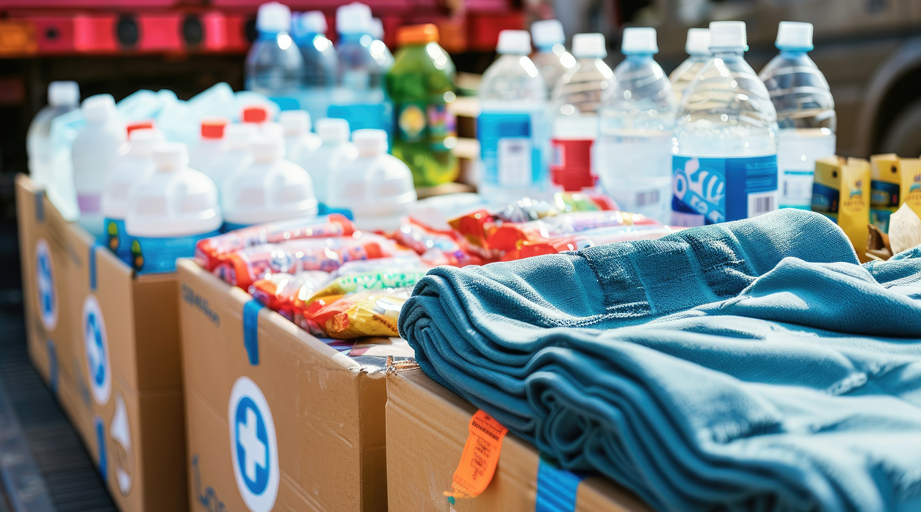
On Tuesday night, John Armitstead reported to Lee Health Coconut Point in Estero, Florida, with a pillow, blanket, and a duffel bag packed with clothes and granola. He figures he won't leave until Thursday afternoon — and will walk outside to a dramatically altered landscape.
Armitstead is the system pharmacy director at Lee Health. On Wednesday morning, Armitstead had a few moments to discuss the health system’s pharmacy preparations for Hurricane Milton, a potentially devastating storm expected to hit Florida’s west coast with high winds, heavy rain, a significant storm surge, and widespread power outages.
“This is the calmest it will be,” he said from the room where he had more than a dozen hurricane emergency packs for one pharmacy.
Lee Health and other Florida hospitals, many of them still recovering from Hurricane Helene, are bracing for one of the most powerful storms to hit the region in decades. Pharmacy operations in these hospitals face a variety of logistical challenges, from anticipating interruptions in supply to figuring out how to get specialty medications to patients.
“We have to anticipate we’re going to have problems, but also our wholesaler might have problems, or that the roads in between us may be impassable,” said Armitstead.
Two hours north of Lee Health, Kenneth Komorny, the chief pharmacy officer at Moffitt Cancer Center in Tampa, Florida, was also helping prepare for the worst. Earlier this week, he said, Moffitt placed emergency supply medication orders with its wholesalers in preparation for expected delivery delays.
“These standard orders provide several days of medications based on our normal ordering history,” Komorny said.
Lee Health and Moffitt have both activated their response and recovery teams to maintain continuous coverage of their operations.
Lee Health has five acute care hospitals, each one with both inpatient pharmacy services and community pharmacies. After Hurricane Ian hit the region in 2022, Lee’s community pharmacies were the only ones with the power to operate for four days, said Armitstead.
Their highest-demand medication after Ian was tetanus toxoid, which Lee has made sure to have in plentiful supply, he said. When people wade through standing, polluted water, he said, “there were all sorts of things in there to puncture and lacerate their feet.”
In Tampa, Komorny said one of pharmacy’s biggest concerns during the storm is maintaining medication integrity amid power interruptions. On Wednesday morning, for example, he learned that team members located at an infusion center were required to evacuate.
“Although we have generators to provide power for our refrigerators, if we lost power and there were problems with our generators, we would not be able to respond to safely store those medications,” he said. “Before weather conditions deteriorated, we were able to transport three double-door refrigerators filled with medications to our hospital.”
Once the storm passes and travel is safe again, said Komorny, Moffitt will reach out to patients who receive outpatient pharmacy services, such as infusion centers and specialty pharmacy. “We will be busy rescheduling patients because of appointment cancellations and delayed oral prescriptions over this Wednesday and Thursday,” he said.
Specialty drugs are of particular concern to Armitstead, too. He said after Hurricane Ian, pharmacy staff had to find ways to get the medications to people whose homes were flooded. “There were several times we had to meet them in a Walmart parking lot because we knew that was a place they could find,” he said.






